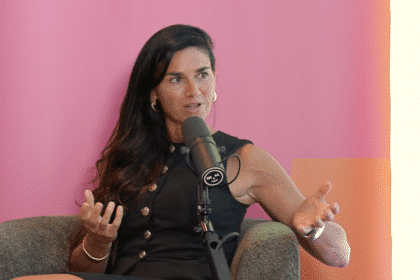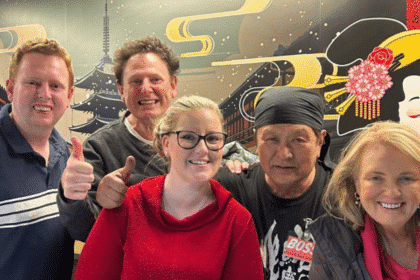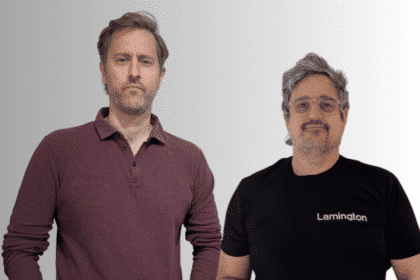The term “content creator” can have some rather unflattering connotations. “Health content creator” perhaps even more so. However, Sarah Wyse (left) and Kylie Robertson (right), formerly general manager – digital, media and marketing and creative strategy and innovation director, respectively, at the AFL, are hoping to change that perception with a new model that will empower kids with knowledge about their health by reaching them where they are.
“The biggest health and wellbeing issues facing young people today are anything from mental health, neurodiversity, gender identity these are the emerging issues that have become mainstream overnight,” Wyse explained to B&T, now CEO and co-founder of Matterworks.
To that end, Matterworks has launched two new series with the ABC to create educational videos aimed at helping young Australians navigate the topics, either by viewing them online via social media platforms or via teachers playing them in schools. Unlike most “health” content online, these videos are not only produced by experts but are informed by serious, peer-reviewed scholarship.
The first of the series ‘Explainer Hacks’, sees artists, designers and makers challenged to use their creativity to help explain mental health and wellbeing topics to 8-12 year olds. In each episode, host and science communicator Lee Constable takes on topics such as autism, puberty and screen time, and calls on an inspiring guest to help bring this to life.
For younger teens, the ‘What’s the Point?’ series focuses on the what and why of what’s good for them. Each episode is hosted TikTok creator Aya Al Chalabi (@notjustaya) and features professional athletes, performers, influencers and artists to figure out just what it takes to turn good healthy choices into daily habits.
Both series use research derived from the Murdoch Children’s Research Institute (MCRI), ensuring a strong evidence base that children, educators and parents can trust.
“There is some amazing work that goes on in schools,” continued Wyse.
“But what we’ve learned is that it can be really hit or miss because it isn’t part of the core curriculum, it depends on the principal, teacher, the resources and funding they have and the school itself. That’s why we’re doing this work with the ABC. We’re trying to make these resources available in the most accessible places to make it easy for teachers to include in their lessons.
“Being able to just press play and having the assurance that it’s all coming from one of the world’s leading child health research institutions, that it’s not made up and governed by research. When [kids] leave school, they’re going on YouTube, gaming or streaming, so we’re borrowing what works outside schools to make important topics more relevant to them,” she added.
Her business partner and chief product officer, Robertson, formerly of Tribal, OmniLab Media and head of creative, digital and emerging products at Penguin Random House Australia, oversees bringing all that knowledge into a digestible format.
“We have a defined process that absorbs white paper material, webinar content, interviews with leading researchers and in-house experts at MRCI and translates the material into a framework in what we call our research content platform. Any creative, writer, producer, educator can come in and use that material and apply it in a creative environment,” she explained.
All of that information goes through an approval process, directed by internal researchers, who also oversee the production of scripts and creative content.
This work, while noble, is not cheap. Fortunately, Wyse’s background — chief revenue officer at Allure Media (now part of Pedestrian TV), managing director at Videology (now Amobee) and national video manager at Nine, means that she has the skills to gather up very disparate pieces of funding available to businesses looking to do good.
“We’re taking a completely different approach, it’s not advertiser or sponsor-funded. It’s leveraging parts of what we would be used to seeing media with production budgets, commissioning work, IP development, strategy consulting, distribution models, licence fees and revenue shares but there is also non-diluted funding from things like health grants and translational work. There are even philanthropists funding big bodies of research that we’ve become party to,” she explained.
“If you’re in the media world, this particular approach isn’t obvious. It’s certainly not obvious in the health or research world because they’re working on developments in medicine and health. They’re not thinking about translating this to most people. But, they are getting more pressure to think about the social side of their work”.
But what does success look like for Matterworks? There’s a danger with this kind of noble work that, for all its promise and hope, sustaining an operation like this on a variety of different bits of funding may prove an insurmountable challenge.
Wyse explained that each project gets a bespoke qualitative and quantitative evaluation. A paper should be coming on some previous work within the next two months. Wyse described the early findings as “positive” with teachers commenting that the new format is proving beneficial to their students.
“It’s about format, understanding and engagement. It was really interesting to see teachers understand the value and benefit of tackling these subjects from a different perspective with TikTok creators, basketballers and Netflix stars. Suddenly kids were paying attention,” she added.
‘Explainer Hacks’ and ‘What’s the Point’ will be available to view on ABC Education from Monday 12 February and ABC TV and ABC iView from Friday 16 February.










